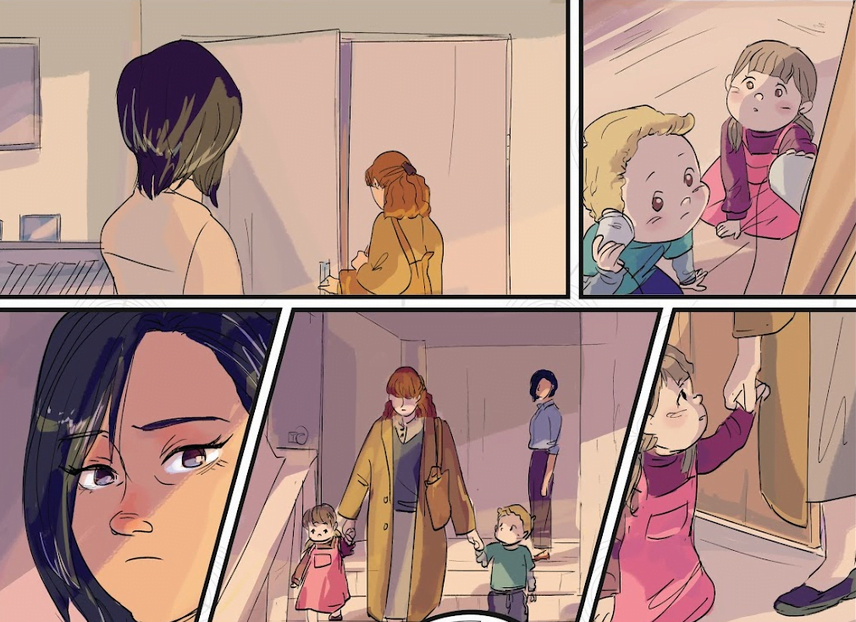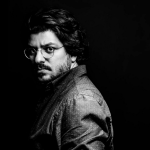Patcha is an organisation based in Damascus, that highlights social issues through creative media. Qisetna talks to the founding team about the creative process around Dandelion, a comic magazine about women’s rights to documentation.
To begin, walk us through why you chose to focus Dandelion on women’s rights in circumstances of displacement.
The idea of ‘Dandelion’ materialised through a series of discussions between its creators. At that point, we were working on creating something that could uphold our artistic standards, but hadn’t yet chosen between the many themes we were passionate about.
As demonstrated by the volumes, we eventually settled on addressing issues related to women’s rights and documentation. More accurately, the magazine addresses how the lack of documentation for displaced women has a tremendous impact on their daily life. While these issues are present in many societies, they can be amplified in socially and politically unstable regions, making the need to address them very urgent. We are also careful to provide a different perspective on these issues — instead of looking at them as outsiders, or through a top-down lens, we aim to make them relatable through our characters.

What messages do you hope to amplify through the characters in Dandelion?
The magazine contains different characters that each reflect a variety of traits and come from different backgrounds. For example, Raghad, one of the protagonists of the stories, is trapped in an unhappy marriage, while facing uncertainty because of her displacement and lack of official papers. Despite that, she aspires for a better life, but needs help to achieve her goals.
Amani, on the other hand, is a lawyer who is trying to help other women and families, challenging institutions that don’t account for these issues. Crossing her path with that of Raghad puts her in a different challenge, and gives her hope of changing something for the better.
The characters present in other stories reflect aspects that are clear in society and revolve around common problems, such as workplace issues.

Break down for us the thought process behind conveying these social messages through comics.
Well of course, comics are a great option for storytelling. They are more naturally suited to narratives than many other forms of media. They are also extremely unique in that they offer us free movement: geographically, they allow us to take our characters anywhere! You have the freedom to move from one setting to another instantly, and with relative ease. That’s why while the stories we are telling are relatable and realistic, the way we are doing so isn’t necessarily so.
More than anything, we chose our medium because we all love it! Most of our team members are comic enthusiasts who share a desire to see one speaking their language, addressing their issues through a medium they love.
Can you share with us how your creative process has grown, and what you are most proud of as a team?
While there’s a lot more to be achieved, there were many things to feel extremely proud about. The production process itself was satisfying for many reasons. Everyone on our team was really committed not only to their specific roles, but to being a part of the team in general. There was a sense of collectivism as we moved forward with creative decisions, and a fluid team dynamic soon emerged. We hope to maintain this balance between professionalism and artistic fluidity as we move further with Dandelion.
Before releasing each new volume, we would create a focus group made up of either women whose lived experiences mirror our comic, or leaders in the industry. Many women’s support groups shared their valuable knowledge with us, to get an in-depth look at what they have to deal with, and how these issues interfere with their lives. This information was the basis of our stories. Collecting feedback and accurate information was always an important part of our process so that we could provide an authentic perspective to our audience.
How have you been sharing your work with your audience, and how has it been received?
We have been entirely reliant on digital publishing — there are no hard copies of our magazine. Social media and word-of-mouth have been extremely useful in broadening our audience. We depended on people liking it and sharing it with their networks, and we crafted a social media strategy that operates in relation to social media limitations in Syria. We had to work around, for example, not being allowed to boost our posts on social media because of restrictions.
In terms of how it has been received, we are happy to have received largely positive feedback from our audiences, in particular, from middle-aged women.

Finally, where are you hoping to take Dandelion in the future? Dandelion is part of a larger social enterprise called Patcha, and so it is merely one of the aspects of creative work we are engaged in. We have recently released a podcast called Hujarat (Rooms), about women’s issues related to living independently. The podcast looks at material and social factors such as housing markets, rents and prejudice that can make the transition to independent living harder for women. We are also hoping to further expand and convey our messages across various media.
🌿
Interview by Vedika Mandapati




